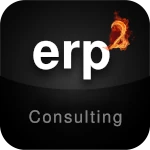erp2 aims to lead the future of business software innovation by designing user-friendly systems for organisations of all sizes, so your team can hit the ground running with minimal training.
Our innovative and modular platform means we can help you solve niche problems with one module or integrate all your core functions into one cohesive system.
With real-time dashboards and analytics, you can make informed decisions faster than ever. With fully customizable applications, your business processes become a competitive advantage.
Our solutions are built on open standards and with scalability in mind, allowing you to adapt and grow without the restrictions of other systems.
Experience unparalleled efficiency, collaboration and sustainability* with erp2
Our expert services include:
-
Custom Software Development
ERP Consulting
Customer Relationship Management (CRM) Systems
Enterprise Resource Planning (ERP) Systems
Manufacturing (MRP) Systems
Backup and Recovery
Project Management
Server Administration

